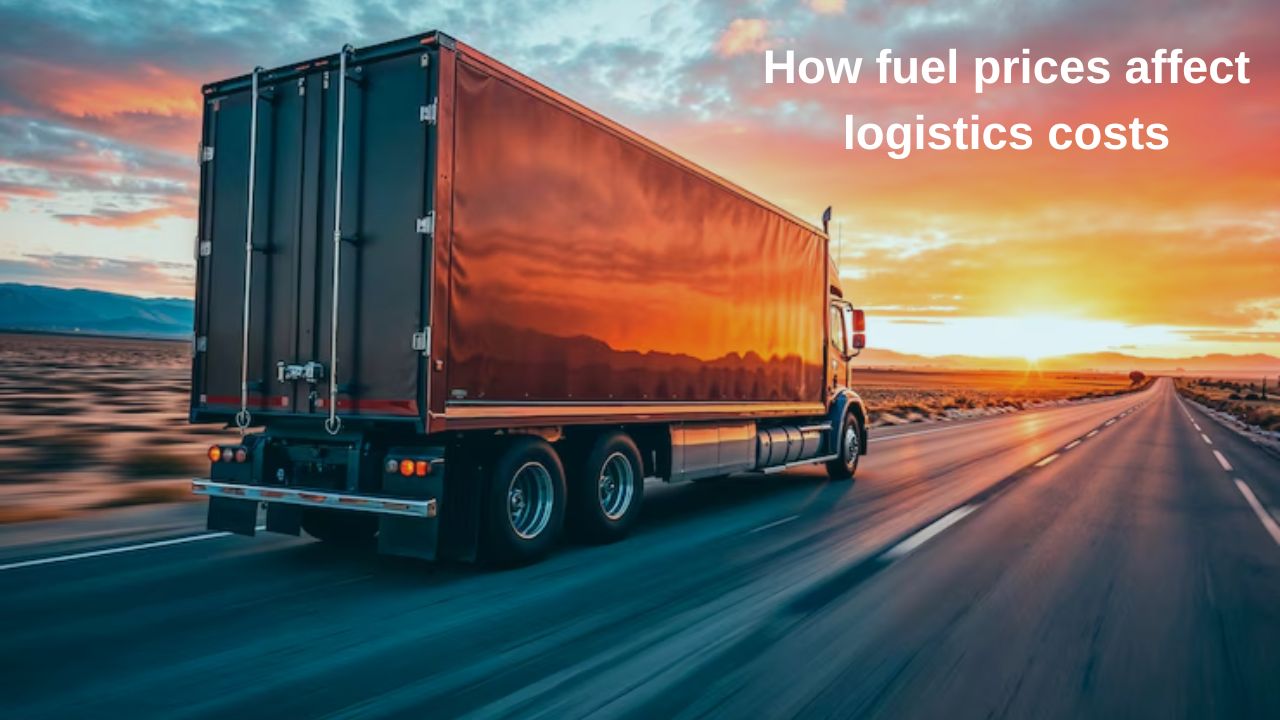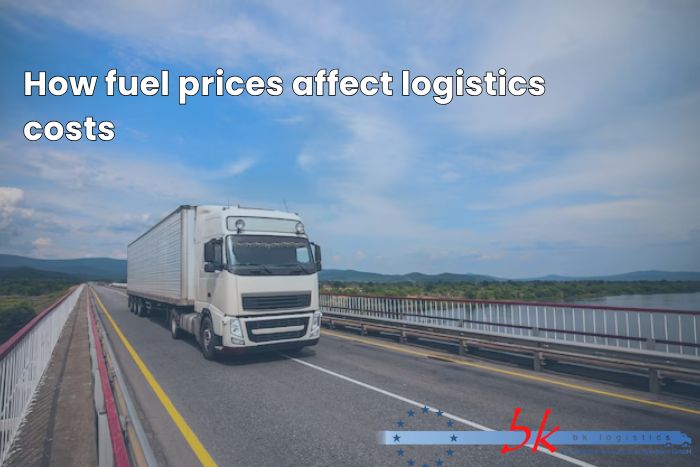News
How Fuel Prices Affect Logistics Costs
Contents
-
Why Are Fuel Prices Crucial For Logistics?
-
Fuel Ratio And Fluctuations In Operating Costs
-
Considerations For Fleet Operations
-
Impact Of Price Fluctuations On Transportation Fees
-
Importance Of Alternative Fuels And Energy Sources
-
Fuel Savings Through Intelligent Route Planning
-
Contract Transportation Strategies And Price Stability
-
Long-Term Cost Management And Planning
-
Fuel Usage In Terms Of Environment And Sustainability
-
Improvements In Fuel Efficiency Through Technological Solutions
Why Are Fuel Prices Crucial For Logistics?
Fuel prices are one of the most critical components of the logistics industry. Fuel consumption represents a significant cost factor in all types of transportation, particularly in road transport. Therefore, any fluctuation in fuel prices directly impacts transportation costs. Long-haul transports, urban deliveries with high traffic volumes, or the size of the fleet increase fuel consumption and, consequently, overall logistics costs.
Occasional fuel price increases strain company budgets and require a redesign of transportation plans. Due to high fuel prices, transportation companies may need to pass on the cost burden to customers through price adjustments. This leads to planning difficulties, especially in logistics processes with fixed-price agreements, and affects the overall cost balance of the supply chain.
Fuel Ratio And Fluctuations In Operating Costs
Fuel is a central cost factor in the entire logistics process. Fuel consumption data for vehicle fleets vary depending on variables such as load type, route structure, and driving time. The high fuel share in operating costs determines the industry’s overall cost structure. Especially in long-haul transportation and heavily used routes, fuel consumption tops the cost list.
Price fluctuations arise due to fuel taxes, exchange rate changes, or developments in global oil prices. This situation leads to budget uncertainties for logistics companies. Sudden price increases can cause planning difficulties in both fixed-cost and demand-driven transports. Companies should continuously monitor economic indicators and the energy market to create long-term forecasts.
Considerations For Fleet Operations
Rising fuel prices not only increase costs but also impact fleet management. Companies aim for efficiency by switching to vehicles with lower fuel consumption. This brings investments in new vehicles to the forefront. Particularly, companies with heavy or large-volume vehicle fleets can switch to more fuel-efficient models to enhance operational efficiency.
Unpredictable prices require flexibility in fleet planning. The distribution frequency and fleet routes are adjusted to save fuel. While this process is demanding, it is crucial for sustainable logistics. At the same time, fuel efficiency can be improved through more effective management of cost factors such as maintenance and driver training.

Impact Of Price Fluctuations On Transportation Fees
Rising fuel prices directly affect transportation costs. Logistics companies operating with fixed-price agreements resort to practices such as additional price increases or fuel surcharges to balance costs. This impacts customer prices and can lead to tensions in customer relationships. At the same time, fragmented transports may result in excessive cost burdens.
Freight companies increasingly rely on flexible contract models to account for price fluctuations. Fuel price index systems provide greater transparency in communication between customers and logistics companies. These systems can build trust between parties but require clearly defined agreements to keep costs predictable.
Importance Of Alternative Fuels And Energy Sources
In addition to conventional diesel and gasoline, alternative fuels offer significant potential for reducing logistics costs. Options such as natural gas, biofuels, electric vehicles, and hybrid systems provide sustainable solutions against rising fuel prices. Investments in these technologies are compelling due to their long-term cost-saving effects.
However, transitioning to these vehicles comes with challenges, such as infrastructure investments and the reorganization of maintenance processes. The increasing availability of charging stations for electric vehicles and natural gas supply points in Turkey is critical for transportation financing. Strategic planning of these technologies in logistics companies creates both cost and environmental benefits.
Fuel Savings Through Intelligent Route Planning
Intelligent route planning systems enable the optimization of logistics processes using digital tools. Thanks to these technologies, alternatives are created by considering routes, traffic density, road conditions, and delivery times. This significantly reduces fuel consumption. Intelligent route planning is particularly important in urban distribution transport.
Telematics systems in vehicle fleets analyze drivers’ fuel consumption behavior. These analyses optimize driver training and feedback processes, enabling fuel savings. Measures such as speed regulation and reducing empty trips can contribute to improving fuel efficiency. This process reduces costs and supports operational continuity.
Contract Transportation Strategies And Price Stability
Long-term contracts ensure price stability, particularly in fleet and delivery planning. Precautions can be taken against fluctuations in fuel prices. Fuel price-indexed agreements offer predictability for both parties. Price differences are captured in this model and accounted for in transportation costs, maintaining cost balance.
Thanks to these agreements, transportation companies can create fixed income plans. Customers can also predict transportation costs. This model is more advantageous than pure freight transport. At the same time, optimizations such as fuel discounts can be considered for bulk purchases. This structure ensures price transparency in logistics processes.
Long-Term Cost Management And Planning
Logistics companies can balance their costs through long-term strategies. Fuel hedging methods enable future price control. Hedging can limit the risk of rising fuel prices through financial instruments. This practice promotes financial planning discipline for companies.
Furthermore, fleet modernization, vehicle age, engine technologies, and maintenance programs can be strategically planned to identify cost patterns. This increases fuel efficiency and reduces maintenance costs. Logistics companies benefit from cost advantages through long-term contracts. This holistic approach enhances the company’s competitiveness.
Fuel Usage In Terms Of Environment And Sustainability
The environmental impact of fuel consumption is gaining increasing importance for logistics companies. Reducing the carbon footprint, sustainability reports, and regulatory requirements support companies in this regard. Reducing CO2 emissions through fuels offers benefits for both the environment and the brand’s reputation.
Green logistics models, such as B-corridor transport, are employed. The use of alternative fuels, energy efficiency, and carbon footprint measurement are the core elements of a sustainable logistics strategy. In this context, companies can improve compliance with regulations and social acceptance by adopting environmentally friendly transportation methods.
Improvements In Fuel Efficiency Through Technological Solutions
Digitization has made significant strides in the transportation sector in recent years. Thanks to IoT-based devices, sensors, and data analytics, vehicle performance can be better monitored. These technologies contribute to optimizing fuel consumption and promote fuel savings through feedback on driver behavior.
AI-supported fleet management systems automatically optimize vehicle routes and provide forecasts for fuel efficiency. These systems strengthen decision-making mechanisms by keeping both fixed and variable costs under control. Companies that invest in technological infrastructure enhance their operational efficiency and achieve cost advantages simultaneously.



